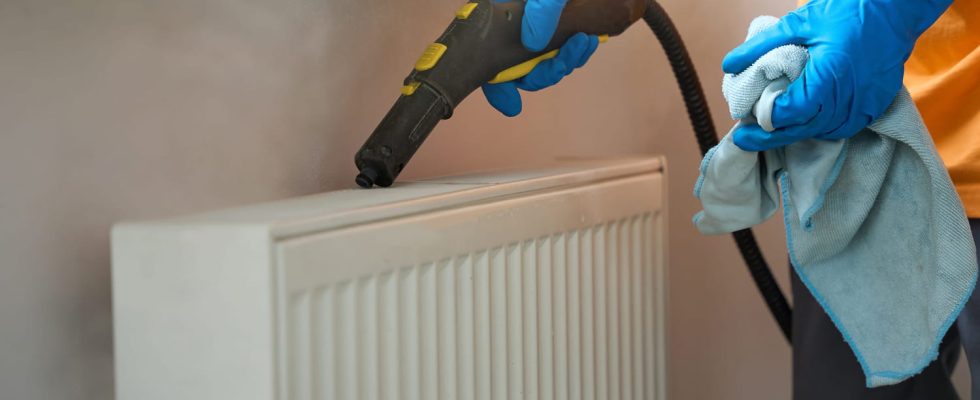It’s time for big spring cleaning. A heating expert shares the products to really avoid when cleaning radiators to avoid damaging them.
It’s time for spring cleaning. Among the household chores not to be forgotten is cleaning the radiators. Their maintenance is crucial to ensure optimal functioning of the heating system and maintain a healthy environment in our homes. Unfortunately, many of us don’t pay enough attention to the products we use to clean these heaters. This lack of vigilance can damage the radiators, but also lead to dangerous consequences, in particular the risk of explosion.
When we clean our radiators we tend to use a variety of common household products such as detergents, all-purpose cleaners or even more corrosive substances like ammonia or bleach. However, what many do not know is that some of these chemicals can react unpredictably with residue built up inside radiators.

Experts have warned which products to avoid when it comes to cleaning the radiator. Before cleaning a radiator in the home, be sure to check that your product does not contain any corrosive chemical components that could damage the radiator. For example, any trace of bleach or ammonia is completely prohibited. These products are extremely damaging if used to clean the radiator and can even shorten its lifespan.
Other types of product to avoid: aerosol antibacterials, they present a huge fire risk, but also abrasive materials. These can damage and scratch the exterior of your radiators, or even remove the paint.
Here are some tips for safely cleaning your devices. Firstly, to safely and effectively clean radiators make sure your radiators are turned off for at least two hours, this is much easier to do in the spring or summer as they are not in use.
For stubborn stains on the exterior of your appliances, leave a spray solution on for a few minutes longer than usual and wipe it off with a cloth or sponge. If your radiator is metallic, the ideal is white vinegar diluted in water to make the exterior shine.
To dust the inside of your radiator, you can use a hair dryer, a long, thin brush (large bottle brush, or baby bottle brush), and even the handle of a wooden spatula covered with a microfiber cloth to reach every corner of the radiator.
